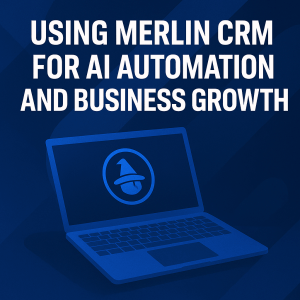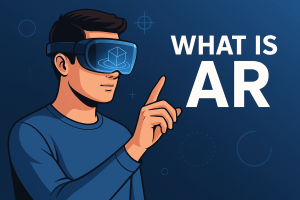Social media has become an integral part of our daily lives, transforming the way we communicate, share, and consume information. But what exactly is social media, and how has it impacted our world? This article will explore what social media is, its evolution, key platforms, and its significance in modern society, along with some important facts and statistics.
Defining Social Media
Social media refers to websites and applications that enable users to create, share, or interact with content and connect with others over the internet. These platforms are designed for social interaction, allowing people to share thoughts, ideas, images, videos, and experiences with a broad audience or a specific community. Unlike traditional forms of media (like television or print), social media is interactive and user-driven, allowing individuals to contribute content and engage with one another in real time.
The Evolution
The roots of social apps can be traced back to early online communication tools, like forums, bulletin boards, and instant messaging services in the 1990s. However, it wasn’t until the early 2000s that social media, as we know it today, began to take shape.
The rise of platforms like MySpace (2003), LinkedIn (2003), and Facebook (2004) marked the beginning of the social media revolution. Facebook, in particular, became a global phenomenon, eventually surpassing a billion users and setting the standard for what a social network could achieve.
Over time, other platforms like Twitter (2006), Instagram (2010), Snapchat (2011), and TikTok (2016) have emerged, each offering unique ways for people to interact and share content. The proliferation of mobile devices has further fueled social media’s growth, making it easier for users to stay connected and share content on the go.
Key Features of Social Media
Social media platforms vary in their features, but most share several core functionalities:
- User Profiles: Users can create profiles to share information about themselves, including photos, interests, and personal details.
- Content Sharing: Users can post photos, videos, articles, and status updates, which can be viewed by others on the platform.
- Interactivity: Social media allows users to interact with others through likes, comments, shares, retweets, or reactions, creating a sense of community.
- Networking: Users can connect with friends, family, colleagues, or people with similar interests, allowing for extensive networking opportunities.
- Messaging: Most social media platforms include messaging capabilities, enabling users to communicate privately.
- Real-Time Updates: Social media allows for the sharing of real-time updates, which can be especially valuable during major events, crises, or live broadcasts.
Popular Social Platforms
- Facebook: With over 2.9 billion monthly active users, Facebook is one of the most widely used platforms, popular for sharing photos, updates, and connecting with friends and family.
- Instagram: Known for its visual content, Instagram focuses on photo and video sharing. It has over 2 billion monthly active users and is especially popular among younger audiences.
- Twitter: Twitter is a platform for sharing short messages, or “tweets,” and is widely used for news, opinions, and real-time discussions.
- TikTok: TikTok has taken the world by storm with its short-form videos. It’s especially popular among Gen Z, and its algorithm-driven content has made it highly engaging.
- LinkedIn: Focused on professional networking, LinkedIn allows users to connect with colleagues, find job opportunities, and share industry-related content.
- YouTube: While often considered a video platform, YouTube is also a social media site, as it allows users to comment, like, and share video content.
- Snapchat: Known for its disappearing messages and fun filters, Snapchat remains popular for real-time sharing among friends.
The Importance of Social Media in Modern Society
- Communication and Connection: Social media has fundamentally changed the way we communicate. It allows us to stay in touch with friends and family, regardless of geographic location, and provides a platform for reconnecting with people from our past.
- Information Sharing: It is a major source of news and information. It allows individuals to share breaking news, raise awareness about social issues, and bring attention to causes that matter to them.
- Business and Marketing: Social media is an invaluable tool for businesses. It enables brands to reach a global audience, engage with customers, build loyalty, and run targeted marketing campaigns. Influencer marketing, in particular, has become a major trend, with brands collaborating with popular personalities to promote products.
- Community Building: Whether it’s a shared hobby, interest, or cause, social media has the power to bring people together. Online communities offer support, advice, and camaraderie, transcending physical borders.
- Entertainment: Platforms like TikTok, YouTube, and Instagram are major sources of entertainment. Users can watch funny videos, follow their favorite celebrities, or participate in viral challenges.
Facts and Statistics
- Global Reach: As of 2024, there are over 5 billion social media users worldwide, representing about 63% of the global population.
- Daily Usage: The average user spends about 2.5 hours per day on social media, indicating the significant role these platforms play in our daily routines.
- Engagement: Instagram and TikTok are known for high engagement rates, especially among younger demographics. TikTok, in particular, has an average user session time of about 10.85 minutes—the highest of any social media platform.
- Business Impact: 93% of marketers say that social media is a powerful tool for brand exposure, and about 73% of businesses believe social media has been effective in their social marketing efforts.
- Content: Video content is the most popular and engaging type of content across social media platforms, with over 80% of all internet traffic projected to be video by the end of 2024.
- Influencers: The rise of influencers has redefined marketing, with millions of influencers on platforms like Instagram and TikTok promoting products, services, and lifestyle trends.
Challenges of Social Media
While social media offers numerous benefits, it also comes with challenges:
- Privacy Concerns: With so much personal information online, privacy has become a major concern. Data breaches and unauthorized use of personal data have led to increased scrutiny of social media companies.
- Mental Health Impact: The pressure to present a “perfect” life on social media can lead to anxiety, depression, and a fear of missing out (FOMO). Excessive use can contribute to feelings of isolation and low self-esteem.
- Misinformation: Social platforms have struggled with the spread of misinformation, fake news, and propaganda. This has made it challenging for users to discern credible information from falsehoods.
- Addiction: The design of social media platforms can be addictive, with constant notifications and the lure of “likes” keeping users glued to their screens.
The Future
The future of social media will likely involve greater integration of AI, augmented reality (AR), and virtual reality (VR), creating more immersive and personalized experiences. AI-driven algorithms will continue to refine content recommendations, making user experiences even more tailored. Additionally, concerns around privacy and the ethical use of data will shape how social media companies operate, with increased regulation and user empowerment.
Social media has revolutionized how we connect, communicate, and share our lives. It offers unprecedented opportunities for individuals, businesses, and communities while also presenting unique challenges. Understanding how social media works, its impact, and how to use it responsibly is essential in today’s digital age.
Whether used for connecting with loved ones, building a business, or simply finding entertainment, social media is a powerful tool that has reshaped the way we interact with the world. Its significance is undeniable, and its influence on our lives will only continue to grow.
Feel free to share your thoughts or any questions you might have about social media. You can connect with me on social media, where you’ll find me as @ochoa.andree.









